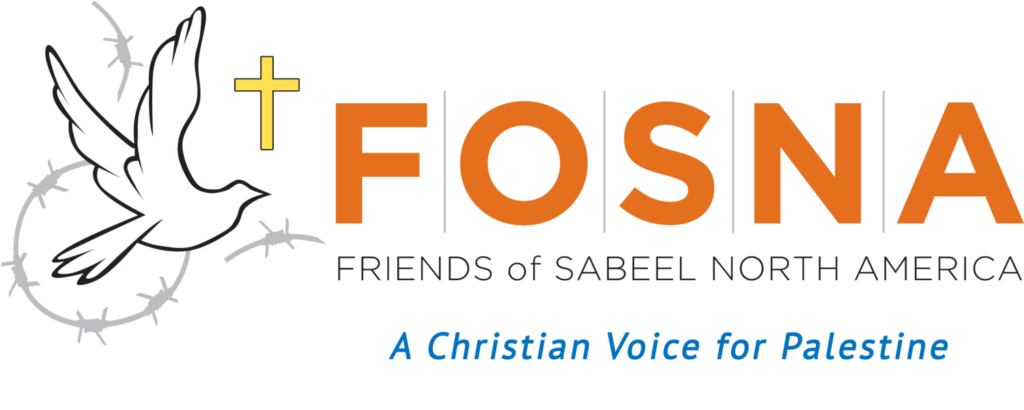
by Jonathan Kuttab
On February 26th of this year, Israeli settlers from the settlement of Shiloh carried out what was described by the Israeli army as a pogrom against the Palestinian village of Huwara, burning vehicles and homes and attacking the population for hours. The army claimed it was caught by surprise, and indeed the entire world was shocked by the event. However, the pogrom at Huwara turned out to be just the beginning of what would become a string of pogroms, last week targeting about 17 Palestinian villages. The fact that the settlers used the pretext of a previous attack that had killed four Israeli settlers as an excuse does not change the fact that these were full-fledged pogroms carried out by hundreds of settlers, attacking defenseless villages, burning homes and cars, attacking and even shooting innocent civilians and terrorizing whole families. Settlers even attempted to burn down homes with people inside them. It is a mercy that most of the targeted homes were made of stone and do not easily catch fire, even when gasoline is poured into them. Israeli soldiers present followed the usual script, of using their power only to protect the settler hooligans from any attempt by the Palestinians to defend themselves. Indeed it is not clear, for example, whether the Palestinian killed in the targeted village of Turmus Ayya was shot by a settler or a soldier.
It also did not seem to matter that the majority of residents of Turmus Ayya were Palestinian Americans, or that a state senator from Michigan and his family was holed up inside one of the houses the settlers attacked and attempted to burn down.
Settler attacks on both Palestinians and their property are nothing new, but the current phenomenon shows a frequency, boldness, and pervasiveness of attacks as well as the involvement of hundreds of settlers participating in organized attacks against the villages in their vicinity. The settlers now feel that they not only enjoy the tacit support of the Israeli Government, but that they are themselves the government and can call the shots directly.
Settlers declare themselves to be the true pioneers of Zionism, reflecting its values and agenda by acting boldly to “liberate or redeem” the land and populate it with Jews, asserting their dominance over its non-Jewish inhabitants. For them, ethnic cleansing and mass deportation are necessary prerequisites to the Zionist program of establishing a Jewish state and taking over the land from its Arab owners. They are eager to complete the task of the Nakba not only in the Occupied Territories but also the Negev and the Galilee. For them, this is the natural outcome of their return to the Promised land. The settlers argue to other Israelis that they are carrying out the Zionist program that everyone wants, without deceit, subterfuge, or worrying about the opinions of the rest of the world. They feel emboldened now that they can carry out their program without pretense, since the relevant ministries and departments of the Israeli government are firmly in their hands. Bezalel Smotrich now openly calls for the addition of another one million settlers, as well as for the Judaization of the Negev and the Galilee. Under the current government, he is in charge of planning and civilian affairs in the West Bank. Itamar Ben Gvir calls openly for a Second Nakba; he is now Minister of Police. They feel the army not only protects (while winking at) their rampages, but actively supports them and even participates in their actions.
The real lesson settlers learnt from Huwara is that the world, particularly the US, will do nothing to stop them. There may be mild protestations, not that much different from the protestations of the Israeli government itself, but there will be no price to pay, no cost for their outrages, and no accountability for their actions. They literally will be allowed to get away with murder. The expectation is that as they will inevitably fail to totally quash or discourage Palestinian resistance, so more and more pogroms become inevitable, and the prospect of another mass expulsion, once considered unthinkable by many, becomes a real possibility—as the settlers openly demand it.
The lesson to all of us is clear. Our failure to put an end to these pogroms makes us complicit in their recurrence and ultimately responsible for their consequences.
The State Department and other US officials are fond of saying that “Israel has the right to defend itself.” One question that must be asked is: “Do Palestinians also have the right to defend themselves, as well?”
A milder question might be: ‘Who will defend Palestinians from settler attacks?” The Israeli army clearly would not, and Palestinians are not allowed to defend themselves. Perhaps it is time to consider again international protection for Palestinian civilians. A strong international presence would curb the currently unbridled actions of Israeli settlers and army, which are becoming increasingly violent.
Until such an effective action is taken it is necessary to send a clear message to Israel that it cannot expect to continue on this course with impunity. It is time to work for real sanctions against Israel and its settlers. Where world governments fail to act, civil society needs to take the lead. BDS (Boycott, Divestment, and Sanctions) is the mildest form of nonviolent action that should be undertaken to address Israeli settler behavior.
The churches in particular have a real responsibility. They are correctly faulted for failing to take action against (and often openly encouraging) the pervasive antisemitism which resulted in myriad pogroms against Jews and eventually the horrors of the Holocaust. They cannot afford to be silent now but must act against apartheid, against pogroms, and against the oppression of the Palestinian people.
